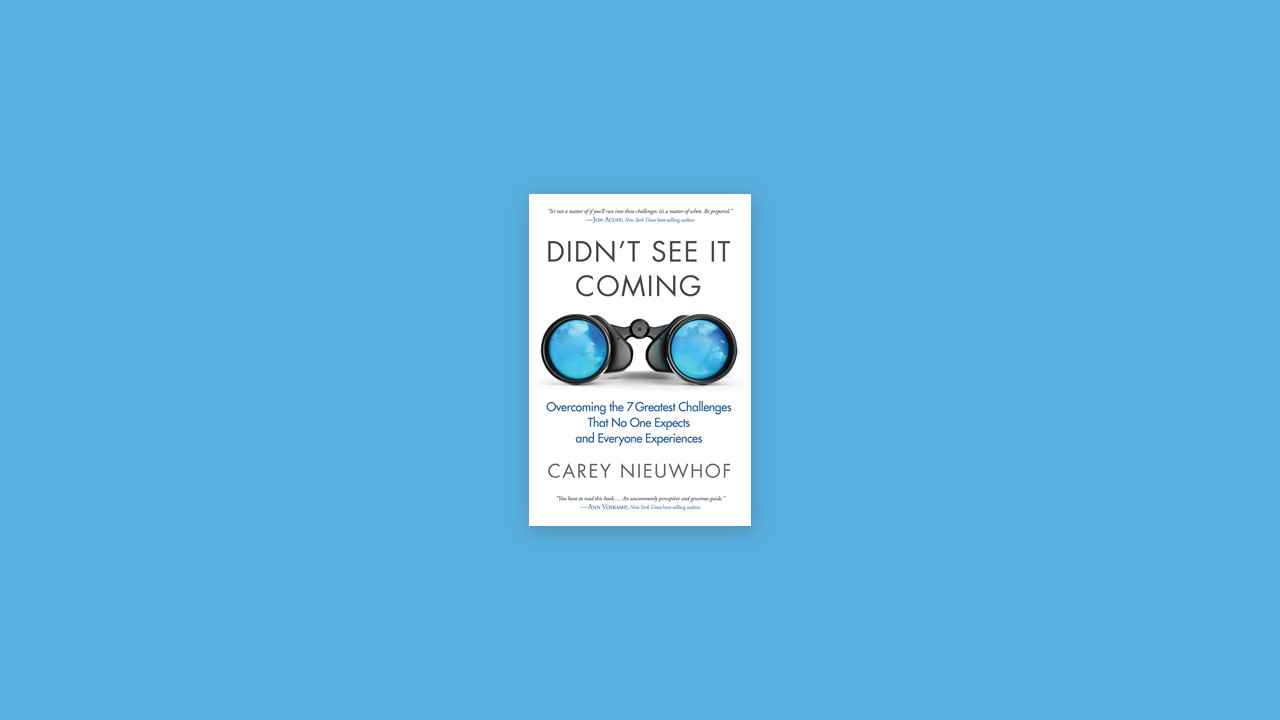Kicking Cynicism in the Teeth
Curiosity is the discipline that kills cynicism and keeps hope alive. Like most things, curiosity is a habit that can be nurtured and developed. Feed your curiosity, and it grows. Starve it, and it withers.
- Schedule Thinking Time
- Ask Open-Ended Questions
- Give Fewer Answers
- Dream More
- Ask Two Pivotal Questions
Curiosity is a discipline, and it’s a viewpoint. If you can adopt a curious outlook day after day, you will discover that cynicism never gets a toehold. Remember, the cynics are never curious, and the curious are never cynical.
You will also discover that the full power of the gospel gets a firm foothold in the lives of the curious. You won’t automatically discount the promises of Scripture. You’ll lose the asterisk that says none of this applies to you. You’ll pray and actually begin to believe there’s a God in heaven who hears you. You’ll realize that tomorrow can be different from today, and you’ll affirm the promise that anyone who is in Christ is a new creation.
Imagine yourself at eighty. What’s happened to you in the decades between today and then? Has your heart grown? Has it hardened? Is your mind flourishing, or have you shut it down? Are you alive and filled with wonder? Or did your passion die decades ago? That’s what’s at stake.
So hope again. Believe again. Trust again. And be curious. Cultivate curiosity long enough, and hope will flourish. And when hope flourishes, cynicism doesn’t stand a chance. What are some telltale signs you’re drifting, that you’re not becoming who you intend to be? Here are five.
- There’s a Growing Gap Between Your Public Life and Private Life
- You’re Hiding Things
- You Fail to Follow Through on What You’ve Said
- You Justify Your Bad Actions and Decisions
- Your Life Has Become All About You
First, compromise is a staple of the human condition. We have a natural inclination toward it. Second, pretty much nobody is ever going to ask you to develop your character. Maybe your spouse will, but that’s about it. Will other people address it? Maybe, but not from the perspective of encouragement. Instead, they’ll just penalize you if you don’t. They’ll fire you, drop you as a friend, or divorce you. Rarely will anyone encourage you to work on your character proactively.
Contrast that with your competency. People will push you to develop your competency. Your parents likely pushed you to get an education. Competency is so highly valued in our culture that people will often pay you to improve your skill set. Your employer will cover the costs for you to go to a conference or take the training courses you need, or perhaps even fund the tuition for your next degree.
Plus, competency is fun. Who doesn’t want to learn a new skill or develop a talent? Devouring a book, listening to a podcast, or taking an online class can be really stimulating. You tend to see tangible results. That skill you picked up is something you can implement this month. That hack you learned has an immediate payoff.
Is Anyone Out There?
Beyond the death of genuine conversation, there’s an even deeper loss happening: confession seems to be disappearing. Depending on your background, you might think of confession as something that happens in a boxlike booth where you divulge all your sins to a priest. Others of us aren’t acquainted with that type of practice, so we tend to shut up about our sins publicly and not really do much about them privately…until we commit the offense again. Neither is really confession at its finest.
The type of confession we’re talking about has a much broader and far deeper meaning. While the relationship between confession and feeling disconnected may seem tenuous, hang with me for a bit. The two are much more connected than you might think.
Confession is the part of prayer and life where we come before God and one another to admit all that we aren’t: our shortcomings, our intentional sins, and myriad unintentional sins. When we confess our brokenness, we admit that we are not all we pretend to be, hope to be, or could be. We own up to the fact that we are a mess.
Confession is hard for many reasons in the best of circumstances. But culturally, we tend to resist the very idea that it’s necessary. We have developed a collective allergy to the application of the word sin to our lives. After all, nobody really makes mistakes anymore. There’s always a scapegoat. It might have been your tough upbringing or your absent father or your overbearing mother or your boss who didn’t like you. It might have been your first spouse and, more recently, your second who’s causing all the angst in your life. It’s definitely not you.
Craving Different
You know that change isn’t easy at all, and there’s something deep inside you that will keep resisting it. That’s understandable. But what happens when you resist the status quo, embrace radical ideas and approaches, study the culture, and surround yourself with younger people? Change becomes familiar. It becomes a way of life.
At first change feels strange, difficult, and foreign. And to some extent, those feelings never go away. But something profound happens if you stick with change and decide you’re not going to stop evolving. Eventually, change becomes transformation. It won’t happen right away, but after a number of years (most frequently, between five and seven), you’ll realize that you’ve been transformed. You’re no longer who you were.
The difference between change and transformation is powerful. On the outside, they look similar. Looking at a person who’s changed versus one who’s been transformed, you won’t see a big external difference. But inside, the transformed person is significantly different. What’s happened? The transformed person no longer wants to go back to the way things were.
When true transformation occurs, the person embraces the future more than the past.
Habits of the Humble
Unchecked, pride will blind you. You’ll stop learning from anyone you deem to be beneath you or equal to you. You’ll snicker to yourself when someone offers you advice. You’ll think, What does he know about that? or Who’s she to give anyone advice?
Pride fueled by insecurity prevents an attitude of teachability and an openness to guidance. You’ll stop learning from people you think are smarter than you or more successful than you. Jealousy kills learning and shuts down instructive conversations.
Humility is not like that. It learns from anyone, anywhere. It keeps its notebook open. That may take the form of a physical notebook, or it might simply mean you take notes on your phone. Whatever your method, take notes when you have lunch with someone, attend a class, or listen to a talk. Glean insights from others.
Are you always going to be surrounded by brilliant people? Of course not. But that doesn’t mean you can’t learn something. So keep your mind open and your pen handy, regardless of whom you’re meeting with. And especially when you’re with someone you’re envious of or someone you think you’re better than. Humility always keeps its notebook open.
Your New Normal
When it comes to burnout, denial is an accelerator. Maybe you’re thinking you’re stronger than burnout. Chances are you’re not. Remember, you’ve got control until you fall off the cliff. Then all control is gone.
Or maybe you think you’re just tired or that the rules don’t apply to you. Well, good luck with that. Every day you remain in denial, you make burnout more likely, not less likely. Rather than care for yourself and deal with your issues, you push on, closer to the edge than ever.
It’s important to note that it’s easier to find relief from the pace than from the weight. Pace can be controlled fairly easily. Take a day off. Shut off your phone. Cancel some meetings. Take a vacation. Put your feet up. Boom, your pace is adjusted.
But rest in and of itself will never bring you relief from the weight of life or leadership. The weight of life is heavy. Weight is what you feel. Weight is the tremendous responsibility many people find impossible to ignore, even when they’re taking time off. Weight is the stress you feel over your marriage, kids, finances, growth, people issues, team dynamics at work, health, crises, and much more.
When All Your Dreams Come True
In fact, the emptiness so many people experience in life is more intense in success than it is in failure. When you fail, you have nowhere to go but up. But when you’re up, when you’ve done what others have only dreamed of doing and you still don’t feel great…well, then what? Most of us have this notion that Once I get to a certain place or achieve a certain thing, life will truly start in full, and I’ll finally be happy and whole.
It just doesn’t work out that way. You graduate, but you find there’s still something inside you that says there has to be more. You find the one, get married, and have kids. And it’s great, but still, what’s that thing inside that says there must be more? You land a job and then a career job and then your dream position, but still, there’s a quiet-but-real gnawing inside that says it’s not all you imagined it would be. You pick different markers—time off, vacations, and savings goals—but still the high continues to be short lived. Keep going, and before you know it, you’ve convinced yourself retirement will fill the hole nothing else has been able to fill. It’s quite the game.


